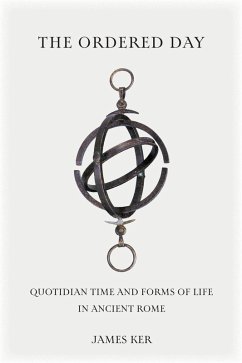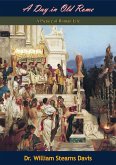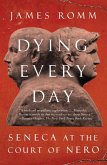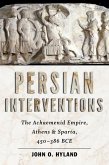Traces how the day has served as a key organizing concept in Roman culture-and beyond.How did ancient Romans keep track of time? What constituted a day in ancient Rome was not the same twenty-four hours we know today. In The Ordered Day, James Ker traces how the day served as a key organizing concept, both in antiquity and in modern receptions of ancient Rome. Romans used the story of how the day emerged as a unit of sociocultural time to give order to their own civic and imperial history. Ancient literary descriptions of people's daily routines articulated distinctive forms of life within the social order. And in the imperial period and beyond, outsiders-such as early Christians in their monastic rules and modern antiquarians in books on daily life-ordered their knowledge of Roman life through reworking the day as a heuristic framework.Scholarly interest in Roman time has recently moved from the larger unit of the year and calendar to smaller units of time, especially in the study of sundials and other timekeeping technologies of the ancient Mediterranean. Through extensive analysis of ancient literary texts and material culture as well as modern daily life handbooks, Ker demonstrates the privileged role that "e;small time"e; played, and continues to play, in Roman literary and cultural history. Ker argues that the ordering of the day provided the basis for the organizing of history, society, and modern knowledge about ancient Rome. For readers curious about daily life in ancient Rome as well as for students and scholars of Roman history and Latin literature, The Ordered Day provides an accessible and fascinating account of the makings of the Roman day and its relationship to modern time structures.
Dieser Download kann aus rechtlichen Gründen nur mit Rechnungsadresse in A, B, BG, CY, CZ, D, DK, EW, E, FIN, F, GR, HR, H, IRL, I, LT, L, LR, M, NL, PL, P, R, S, SLO, SK ausgeliefert werden.









